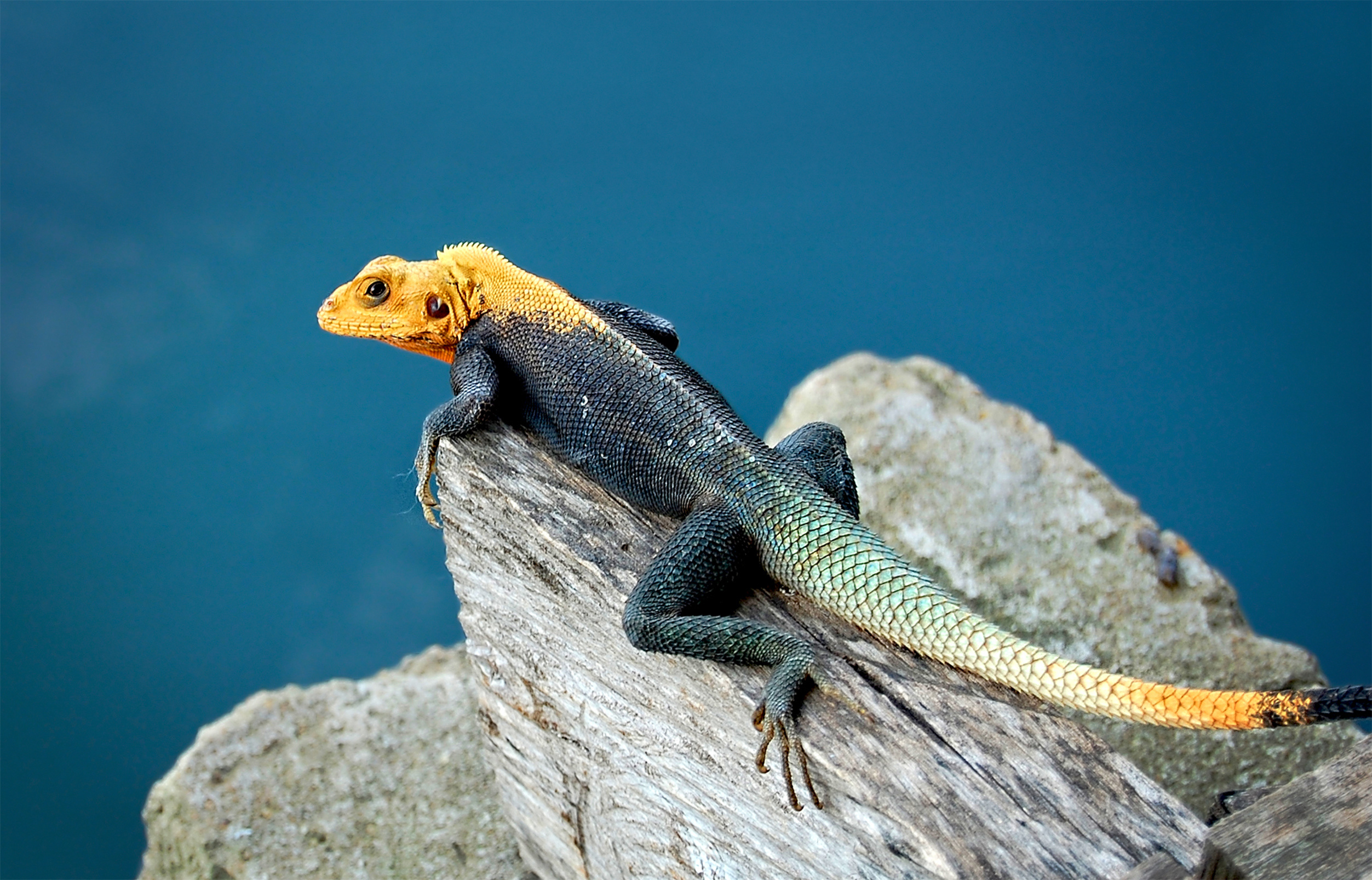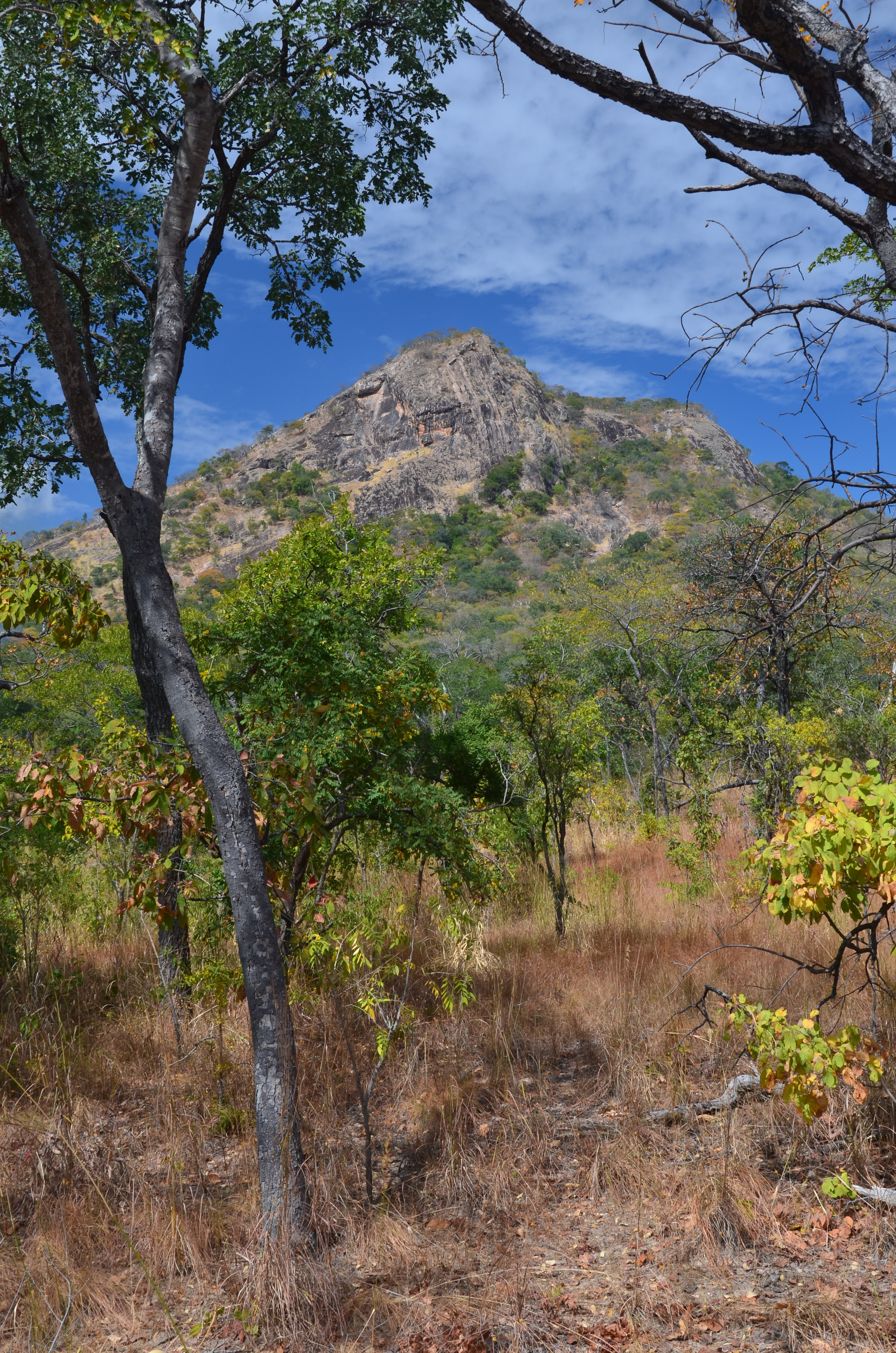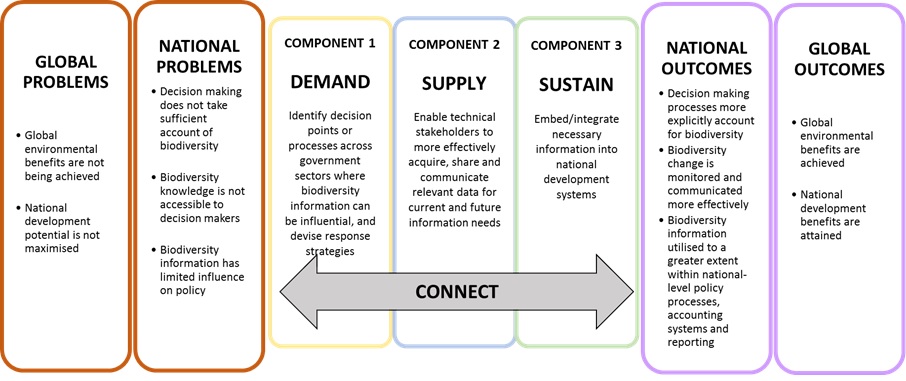Project Title : Mainstreaming biodiversity information into the heart of government decision making
The Connect Project is a multi-country, multi-partner initiative coordinated by United Nations Environment World Conservation Monitoring Centre (UNEP-WCMC) and funded by the Global Environment Facility, the world’s largest public funder of international environmental projects. The initiative is taking place in three countries in Sub-Saharan Africa, Ghana, Uganda and Mozambique, with implementation support from UN Environment. National partners come from relevant ministries, the scientific community, non-government organizations, civil society and local communities.
GEF Project Page: https://www.thegef.org/project/mainstreaming-biodiversity-information-heart-government-decision-making
 Project Goal:
Project Goal:
To help achieve sustainable development by bringing biodiversity information to the heart of government decision making using actionable biodiversity information.
Project Objective:
To ensure biodiversity is taken into account in decision making across government sectors by improving development decision makers’ access to and use of biodiversity information and embedding biodiversity information within national development decision making processes.
At a global level, the project objectives are:
The specific national level project objectives are:
A great deal of the world’s biodiversity has already been lost; this is a well-substantiated global environmental problem, with considerable consequences for human well-being.

Biodiversity and ecosystem services are essential components of a healthy economy, relevant not only to the environment sector but across all sectors of society. Loss of biodiversity and impacts on ecosystem services through human activities has consequences across a number of sectors, as actors find it more difficult to achieve their own objectives and aspirations, including for development and poverty reduction.
In order to change this situation, government decision makers need to have access to biodiversity information that helps them to understand the potential impacts of the decisions that they are taking. At the same time, biodiversity data and information providers also require an improved understanding of decision making processes, and how biodiversity information can be most effectively integrated into those processes both now and in the future.
The Connect project will help governments to achieve sustainable development by bringing biodiversity and ecosystem services to the heart of government decision making using actionable biodiversity and ecosystem services information. It focuses on in depth development of proofs of concept with the governments of Ghana, Mozambique and Uganda to:
The Connect project Theory of Change was designed in close collaboration with project partners who have significant experience in the field of mainstreaming. It articulates the transition from identified problems to intended impacts, based on strategic interventions in the three project components.
IIED is a policy and action research organisation. They promote sustainable development to improve livelihoods and protect the environments on which these livelihoods are built. They specialise in linking local priorities to global challenges. IIED is based in London and works in Africa, Asia, Latin America, the Middle East and the Pacific, with some of the world’s most vulnerable people. They work with them to strengthen their voice in the decision-making arenas that affect them — from village councils to international conventions.
Prospex is an internationally active company based in Belgium and is broadly involved in changing the strategic future of companies, organisations and societies, more specifically through the engagement of stakeholders for strategic foresight, consensus-building and negotiated agreements. They help companies and organisations develop shared insights and understanding of their futures in order to achieve excellent results.
The Convention on Biological Diversity (CBD) entered into force on 29 December 1993. It has 3 main objectives: the conservation of biological diversity; the sustainable use of the components of biological diversity; and the fair and equitable sharing of the benefits arising out of the utilization of genetic resources.
GBIF - the Global Biodiversity Information Facility - is an open-data research infrastructure funded by the world’s governments and aimed at providing anyone, anywhere access to data about all types of life on Earth.
BirdLife International is a global partnership of conservation organisations (NGOs) that strives to conserve birds, their habitats and global biodiversity, working with people towards sustainability in the use of natural resources. There are 120 BirdLife Partners worldwide – one per country or territory – and growing.
The Group on Earth Observations Biodiversity Observation Network (GEO BON) is an initiative aimed at improving the availability of biodiversity change data to decision makers and scientists in support of policy.
The South African National Biodiversity Institute (SANBI) leads and coordinates research, and monitors and reports on the state of biodiversity in South Africa. The institute provides knowledge and information, gives planning and policy advice and pilots best-practice management models in partnership with stakeholders. SANBI engages in ecosystem restoration and rehabilitation, leads the human capital development strategy of the sector and manages the National Botanical Gardens as 'windows' to South Africa's biodiversity for enjoyment and education.
The Joint Research Centre of the European Commission (Sustainable Resources Directorate) provides independent scientific evidence to support the development, implementation, evaluation and coherence of EU policies, mainly in the areas of agriculture and rural development, development cooperation, environment and climate change, blue growth and fisheries, the bioeconomy, industry and trade.